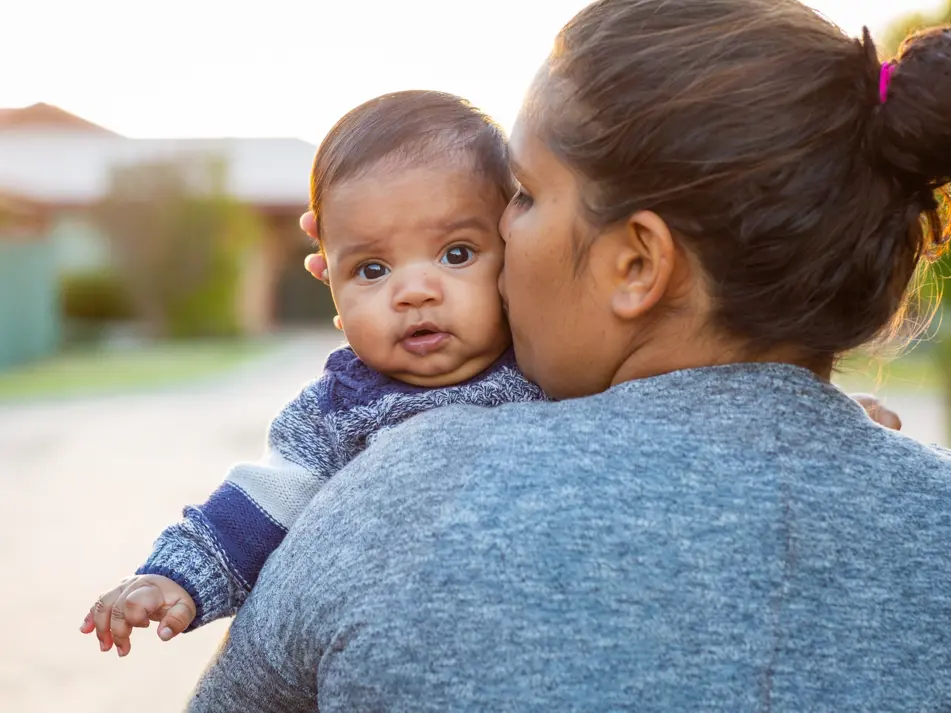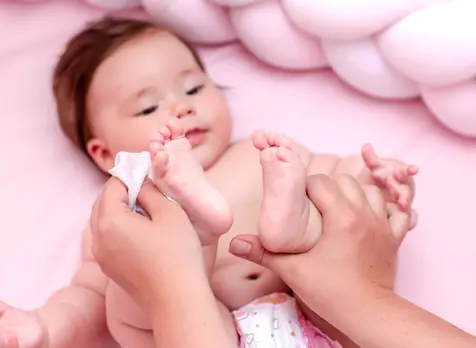Health
Keeping your baby healthy is one of the most important parenting tasks. Select one of the following topic's below to find out more.

Keeping your baby healthy is one of the most important parenting tasks. During your baby's early years, you will almost certainly have to deal with colds and sniffles, nappy rash and other health concerns.
Having regular check ups with your GP and family health nurse, timely vaccinations, a nutritious diet, and a safe environment can all help safeguard your baby's health.
Here are some other common health problems that babies may have in the first few months.
Get medical help immediately anytime your baby becomes unresponsive or difficult to rouse, has a fit or seizure or has a rash.
Immunisation
Immunisations may be something you are already aware of and comfortable with, or they may be one of the questions and concerns that you have as a new parent.
It’s important to know that immunisation programs have made a massive difference to the survival and health of babies and children – they are one of the safest methods and the single most effective method in preventing disease and death to date. Since immunisations were first introduced in Australia in the 1930’s, deaths from preventable infectious diseases have fallen by 99%.
Because the evidence supporting immunisation is so compelling, Tresillian fully supports current health policies for the immunisation for babies, children and adults.
Sometimes babies can experience a side effect following an immunisation. These are usually mild, and may result in your baby being more irritable or unsettled for a short period of time, or developing a mild fever, or redness and swelling at the injection site. You can help your baby to be comfortable by offering more cuddles and more frequent feeds. If you are at all concerned, seek further advice from your nurse or doctor.
Thrush
White patches on your baby’s tongue or inside the mouth; a mild fungal infection. This is easily treated, see your doctor.
Milia
Tiny white spots on your baby’s nose, cheeks or chin in the first few weeks or months. Newborn milia is dead skin cells that have collected under the skin and should eventually disappear on it’s own. See your family doctor if the spots become red or swollen.
Tongue-tie
When some babies the skin under their tongue has not yet separated from floor of the mouth, so the tongue is “tied”, restricting movement. Most of the time this won’t cause any difficulty feeding and will resolve over time.
Cradle Cap
A build up of a thick, pale, yellowish oily scale on the scalp. It’s very common, and easily treated. Wash and massage your baby’s head regularly, but avoid picking at it.
Eczema
Skin dryness and infantile eczema are common in the first 6 months; babies with eczema need special care to reduce their skin dryness and avoid things that might irritate their skin.
Fever
Infections can cause a fever of 38°C+ in babies. Whilst a fever is a normal response to infection, it can be unpleasant and uncomfortable for your baby. They may become irritable and hard to settle, or lethargic and sleepy. Most infections causing fever are mild and resolve on their own, it is important to seek help earlier for your baby if they are less than 3 months old.
Diarrhoea
The infections that lead to diarrhoea can be very easily spread from person to person. Maintain good hygiene, particularly hand washing, to reduce the spread, and keep your baby away from other people who have diarrhoea and/or vomiting.
Birthmarks
Many babies will have some sort of redness or marking in the first few days after birth, as well as moulding of their head, due to the physical pressures as they travel down the birth canal during birth. This is very common. Some babies have more distinctive birthmarks that linger. These may need treatment with a specialised laser to remove or reduce them.
- Stork marks: These common pink/red patches are present at birth, most often seen on a baby’s face, head or neck. Stork marks are caused by a concentration of blood vessels, and generally fade in the first 3 years.
- Mongolian spots: This mark is a blue/purple coloured patch that may occur on a baby’s bottom or lower back. These marks are present due to a larger concentration of skin pigment cells, and generally fade during infancy-early childhood.
- Port wine stains: As the name suggests, these marks are pink-red-purple marks, typically seen on the face or other parts of the baby’s body from birth, and persist – these marks do not fade and can become darker over time.
Sun Exposure
Your baby’s skin is delicate and very sensitive to the sun. Keep your baby’s face and eyes out of direct sunlight, and cover baby’s skin with clothing and a hat; keep in the shade, and avoid having the pram outside during peak UV light times. Download The Cancer Council’s SunSmart app for more info. Sunscreens are generally not widely recommended for babies under 6 months.









































